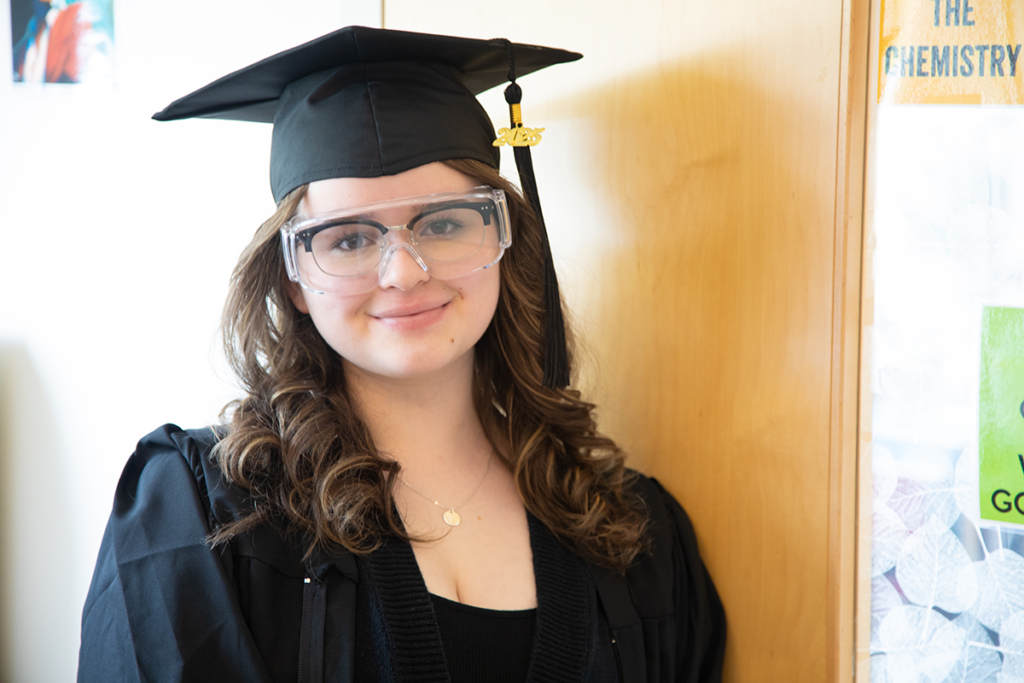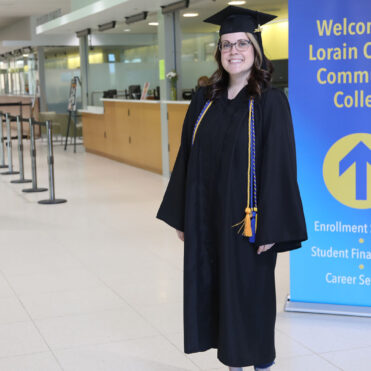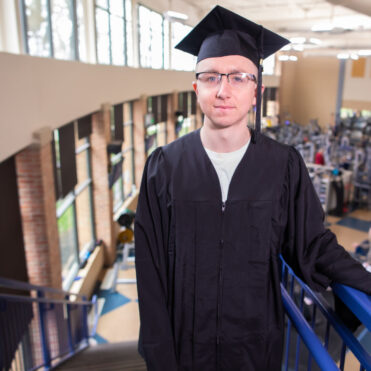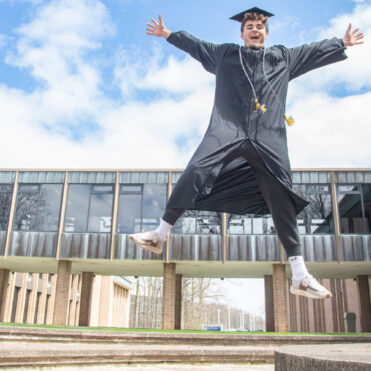Jocelyn Mateo:
Early College High School
It seems the stars—well, more like planetary data—might align for Jocelyn Mateo. As an intern at Johns Hopkins University, Mateo spent last summer conducting research connected to NASA’s Europa Clipper mission. Europa Clipper, which launched in October 2024, is Earth’s first mission to conduct a detailed science investigation of Europa, a Galilean moon of Jupiter.
In 2030, Europa Clipper should enter Jupiter’s orbit, allowing it to conduct flybys of Europa.
Those five years will give the 2025 graduate enough time to earn her bachelor’s degree in planetary science at Marietta College—she has just two years left—and begin working on her Ph.D. She’d like her doctoral research to focus once again on the Europa Clipper mission.
“I want to become an established planetary scientist and return to the Europa Clipper mission in 2030, just as data begins downlinking to Earth,” Mateo said. “That way, I can continue the research I had done with Johns Hopkins University Applied Physics Laboratory with all-new imaging data. I am so excited to see how Europa’s surface has shifted and how that might impact my research.”
At just 18 years old, Mateo’s scientific research experience is already extensive, expanding beyond the Europa Clipper mission. And for Mateo every research opportunity has come about because of one choice—enrolling in the Lorain County Community College Early College High School program.
“As a high school student, research opportunities are hard to come by. As a dually enrolled student, so many doors opened for me,” Mateo, from North Ridgeville said.
In the Early College High School program, Mateo has spent all four high school years on the LCCC campus taking college courses. The goal is for students to earn their high school diploma and associate degree at the same time. Mateo is earning two associate degrees, one in arts and one in science.
“Seeing the potential savings on my bachelor’s degree and having the challenge of college courses brought me to LCCC,” Mateo said.
The program also helped her discover a love for science and research. And her professors were quick to nourish that newfound passion.
“Dr. Regan Silvestri has been my biggest supporter at Lorain County Community College in my research endeavors and academic success,” Mateo said.
Mateo joined the chemistry professor’s research lab during her sophomore year.
“I recruited Jocelyn to work in my research group because I was confident of the valuable contributions that she would make,” Silvestri said. “I saw both a technical competence and a professional and personable nature.”
The student research project, launched in 2022, involved quantifying antioxidants in non-alcoholic beers. Within the first year, Silvestri’s intuition about Jocelyn proved right.
“She rose to the top of the group due to her intellectual ability, diligence at work, and outstanding ability to communicate intricate technical concepts with the rest of the team,” he said. “Since then, Jocelyn has been looked to by the rest of the student group as a natural leader.”

Silvestri isn’t the only one who’s recognized Mateo’s abilities.
In January 2023, the American Chemical Society presented her with the ACS Chemical Technology Student Award. That fall, at Silvestri’s encouragement, Mateo applied to and was accepted into NASA’s Here to Observe (H2O) program. The introduction to NASA led to her becoming a NASA Europa ICONS intern at the Johns Hopkins University Applied Physics Laboratory. Last year, Mateo presented that research, titled “Triple Junctions as Indicators of Lithospheric Behavior,” at the 56th Lunar and Planetary Science Conference in Texas.
“I had never presented at a conference before, let alone on relevant scientific research,” Mateo said. “Despite that, my presentation went well, and I received some kind praise for it.”
As opportunities presented themselves, Mateo took hold of them. It’s in her nature, Silvestri said.
“She’s extremely knowledgeable and hardworking, with a very strong work ethic,” he said. “Jocelyn is eager and motivated to achieve her goals—whatever they are.”
For Mateo, the goal is clear. Beyond returning, as a Ph.D. student, to the research she began as an Early College High School student, Mateo would like to encourage scientific understanding and engagement.
“I hope to promote scientific literacy by creating presentations and publications that are as accessible as possible,” Mateo said. “I also hope to inspire others and create more aspiring scientists in the generations to come.”



